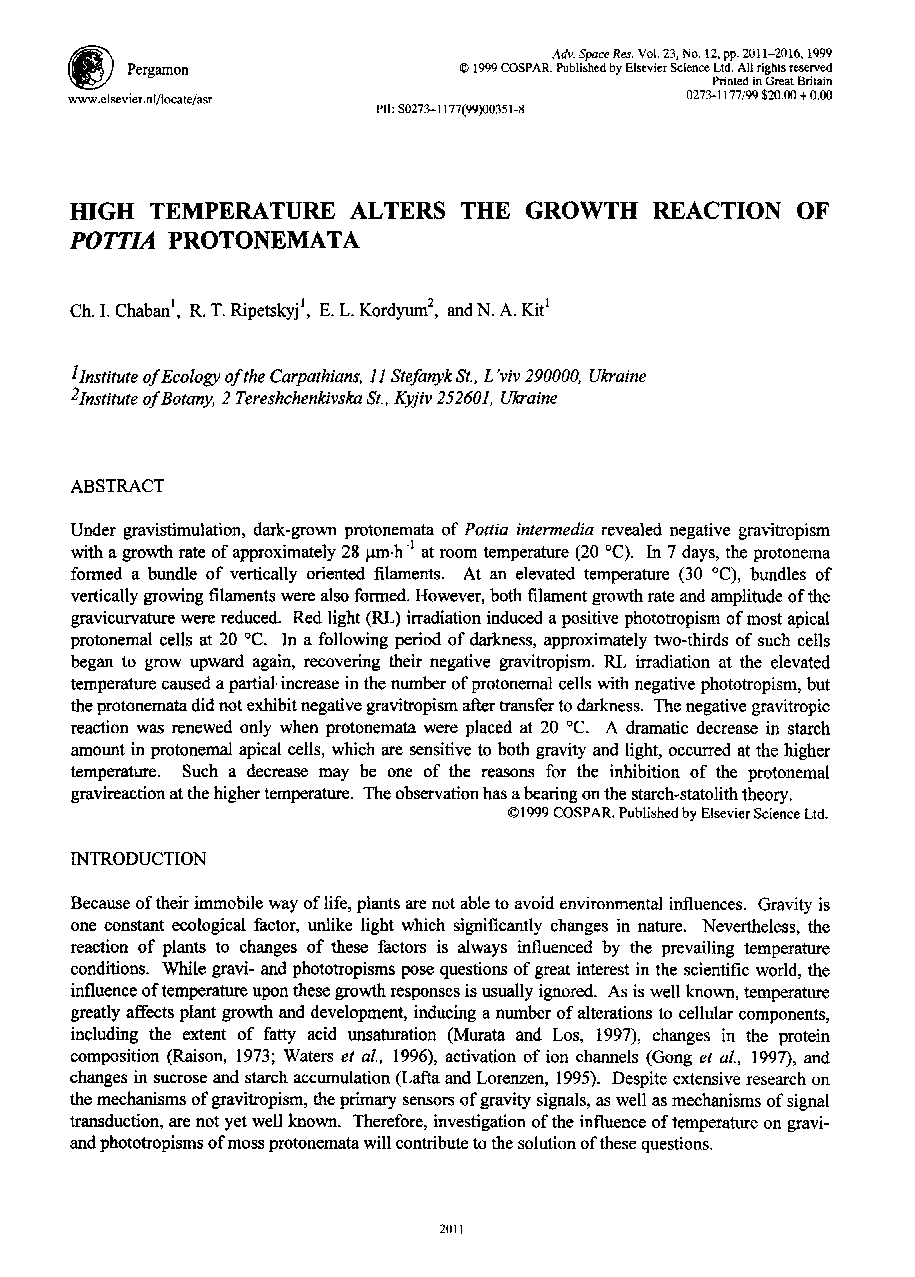| Article ID | Journal | Published Year | Pages | File Type |
|---|---|---|---|---|
| 1770175 | Advances in Space Research | 2016 | 6 Pages |
Under gravistimulation, dark-grown protonemata of Pottia intermedia revealed negative gravitropism with a growth rate of approximately 28 μm·h−1 at room temperature (20 °C). In 7 days, the protonema formed a bundle of vertically oriented filaments. At an elevated temperature (30 °C), bundles of vertically growing filaments were also formed. However, both filament growth rate and amplitude of the gravicurvature were reduced. Red light (RL) irradiation induced a positive phototropism of most apical protonemal cells at 20 °C. In a following period of darkness, approximately two-thirds of such cells began to grow upward again, recovering their negative gravitropism. RL irradiation at the elevated temperature caused a partial increase in the number of protonemal cells with negative phototropism, but the protonemata did not exhibit negative gravitropism after transfer to darkness. The negative gravitropic reaction was renewed only when protonemata were placed at 20 °C. A dramatic decrease in starch amount in protonemal apical cells, which are sensitive to both gravity and light, occurred at the higher temperature. Such a decrease may be one of the reasons for the inhibition of the protonemal gravireaction at the higher temperature. The observation has a bearing on the starch-statolith theory.
